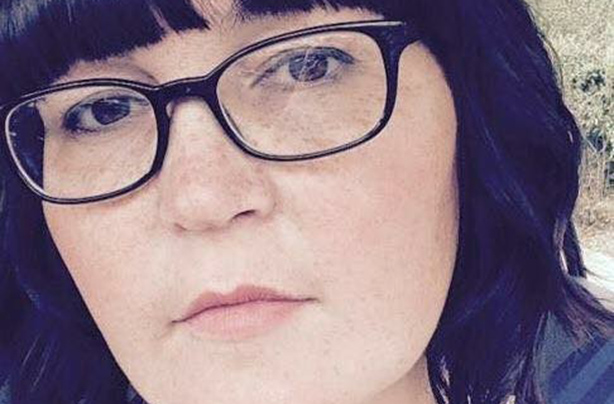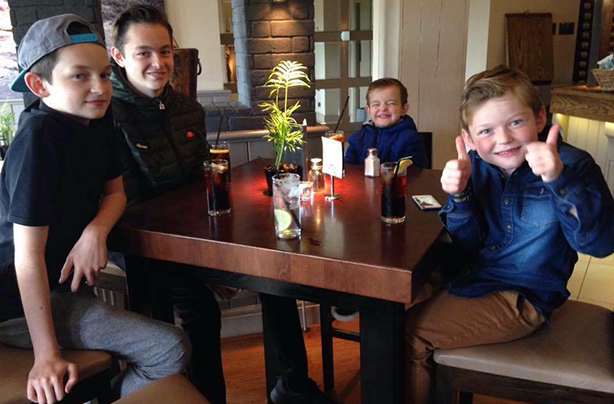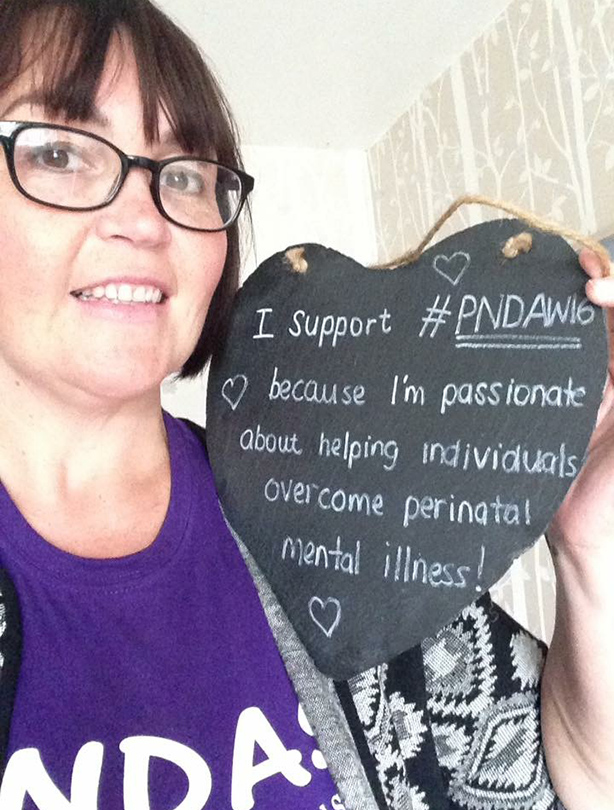'I'd daydream of the possible ways to end my life' One mum's battle with postnatal depression
Around 1 in 15 women will experience mental health issues during and after pregnancy

Postnatal depression can be one of the most alienating and confusing moments in a person's life. At a time which is meant to be euphoric, a mum diagnosed with postnatal depression can feel the exact opposite.
Around 1 in 15 women will experience mental health issues during and after pregnancy, according to the PANDAS Foundation. Common symptoms include feelings of depression and anxiety, which few women realise are not the norm.
Sally Wilson, 34, is a mum to four boys: Josh, 15, Isaac, 12, George, six, and three-year-old Stanley. She lives with her children and husband Josh in Stoke-on-Trent.
Sally suffered with postnatal and prenatal depression, and went through a rollercoaster journey in her battle against the disorders. A suicide attempt led to counselling, and eventually to managing her depression and helping other mums with her support group. Here, she tells us her story...
With my first son, the overwhelming responsibility hit me straight away.
I can remember him screaming and screaming - it was the loudest cry ever. I just didn't know what to do. I can remember thinking 'What the hell have I done!'
I lost all my confidence in my own ability to cope, and I felt like my own natural instinct of being a mum hadn't kicked in. I found it extremely hard work, I had no clue what I was doing, and lagged most days.
GoodtoKnow Newsletter
Parenting advice, hot topics, best buys and family finance tips delivered straight to your inbox.
During my pregnancy, I read every parenting book and magazine on the market. I thought I had this parenting down to a tee... little did I know what a huge impact this tiny person would cause. He was a ticking time bomb, and so was my mood.

Image: Sally Wilson
Sally's four boys
Now, I recognise that idealisation was a contributing factor towards my postnatal depression. I had envisaged such high standards and expectations that were completely unrealistic. Things don't go to plan; babies are unpredictable, although you can usually guarantee they'll have a poo explosion just as you walk out the door!
Now, I know that it's okay to mess up and forget something really important, like spare clothes or a nappy, but back then, I thought that how I was feeling at the time just wasn't good enough.
'I should remember everything, I should plan things better, I need to be perfect,' I remember thinking. I blamed myself for everything; I thought that because I should have been coping and feeling happy, then I had obviously failed.
I hated my life, I hated myself, and I wasn't too keen on my baby either.
I missed the old me, I missed the spontaneous date nights with my husband, I missed going shopping whenever I wanted, I missed wearing my 'skinny' clothes, and I looked back at the days of always having clean hair and make-up on. Most of all, I missed the confident, friendly happy old me. I wanted her back - not the sad, lonely, grey, scruffy person that I had become.
I didn't suffer from either prenatal or postnatal depression when I had my second son, but experienced prenatal depression whilst pregnant with my third son, and then postnatal again after he was born.
I did the school run hiding behind my mask of make-up, pretty clothes and a false smile. As soon as I'd get home, I'd put my pyjamas on, draw the blinds, and sleep all day until it was time to pick the kids up. When my boys were home, I kept up appearances to make sure they wouldn't suspect that anything was wrong.
Strangely, I had been on cloud nine for the first week or two. I mastered breastfeeding and felt more positive about being a mum - but then I noticed that I only really enjoyed being a mum when I had the fuss of visitors around. When things quietened down and I was left alone, I started feeling low and unlike myself again.
I felt the 'baby blues' kicking in, and I knew I was experiencing postnatal depression again, even though I was reluctant to admit it even to myself.
Things deteriorated quickly. Hours would pass, and I would be daydreaming about the possible ways to end my life.
'What would be the simplest, quickest, and most painless option?' I would wonder. I didn't want to die, but I had had enough - physically, emotionally and mentally.
I had planned it all out. One Sunday morning when my husband was with the children, I took an overdose of pills. Luckily, I didn't do it properly, and it saved my life.
I broke down in tears while confiding in a friend what I had done. She informed the health visiting team. I was assessed and placed in the Mother and Baby unit, where I received CBT counselling.
I initially found it hard to talk to a complete stranger about such a sensitive and personal time of my life. I felt so ashamed of myself.
I can remember my older boys drawing in the waiting room during my first session. When I came out, they had drawn a picture for my mental health nurse which read: 'Please make my mummy better.' This was my turning point. By no means was it an easy process to become 'better', but counselling enabled my awareness of my negative thoughts, and gave me strategies to aid my recovery.
Some days, I could find countless excuses not to go to a counselling session, but I pushed through them.
I felt immensely thankful for the help and support which the Mother and Baby unit gave to me - and I promised myself that once I was ready, I would do something in return.
One morning, I discovered the PANDAS Foundation, and immediately decided that it was the right time and opportunity to start the first support group in Stoke on Trent. Today, I work alongside the Mother and Baby unit, helping mothers who have recently been discharged from their care.

Image: Sally Wilson
Sally now runs her own PANDAS support group
I'm also a PANDAS Support Group Leader - watching mums gain strength and support from each other and witnessing vital friendships form is so rewarding.
I was so inspired that I studied mental health, which has led to my current job in Perinatal Mental Health.
If you're a mum who's experiencing a low mood, irritability, exhaustion, overwhelming emotion and isolation - you are definitely not alone, and it's okay not to feel okay!
Please do find the strength to reach for help from your health care professional.
Talk about your feelings with your partner, family and friends. They can't help if they don't know what you're going through!
The PANDAS Foundation also have a helpline and online support and forums available, or you could find a local support group in your area.
Lastly, be gentle with yourself - you are amazing!
For more information on prenatal and postnatal depression, or mental health issues in general, please visit the PANDAS Foundation online.
Trusted, informative, and empathetic – GoodToKnow is the ultimate online destination for parents. At GoodtoKnow, our mission is 'simple': we're trying to make sense of parenthood. On the site, you'll find everything you need for a happy, healthy family life. Our huge archive of content includes more than 18,000 articles and 1,500 how-to videos. These include expert-backed advice features on parenting, dealing with relationship changes after having a baby, self-care for mums and managing your family finances. We also feature tried-and-tested product reviews and buying recommendations for every stage of family life - from prams and Moses baskets to birthday gifts and top toys.